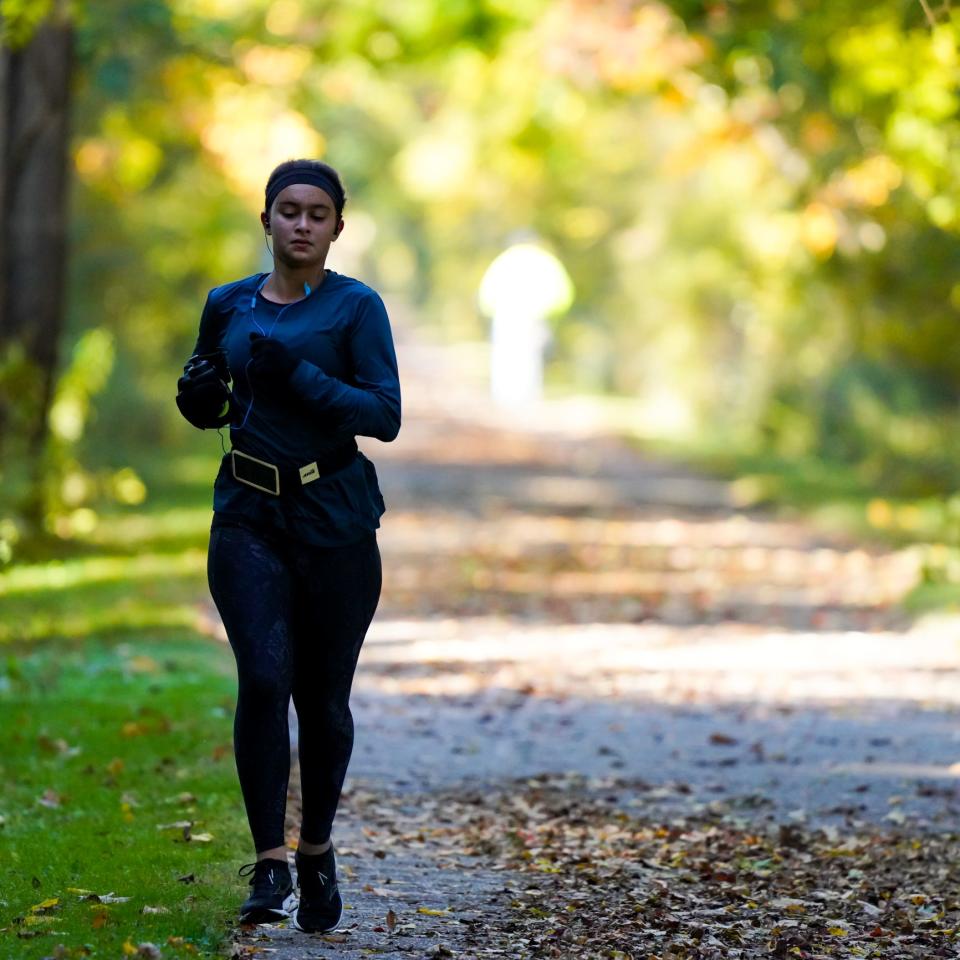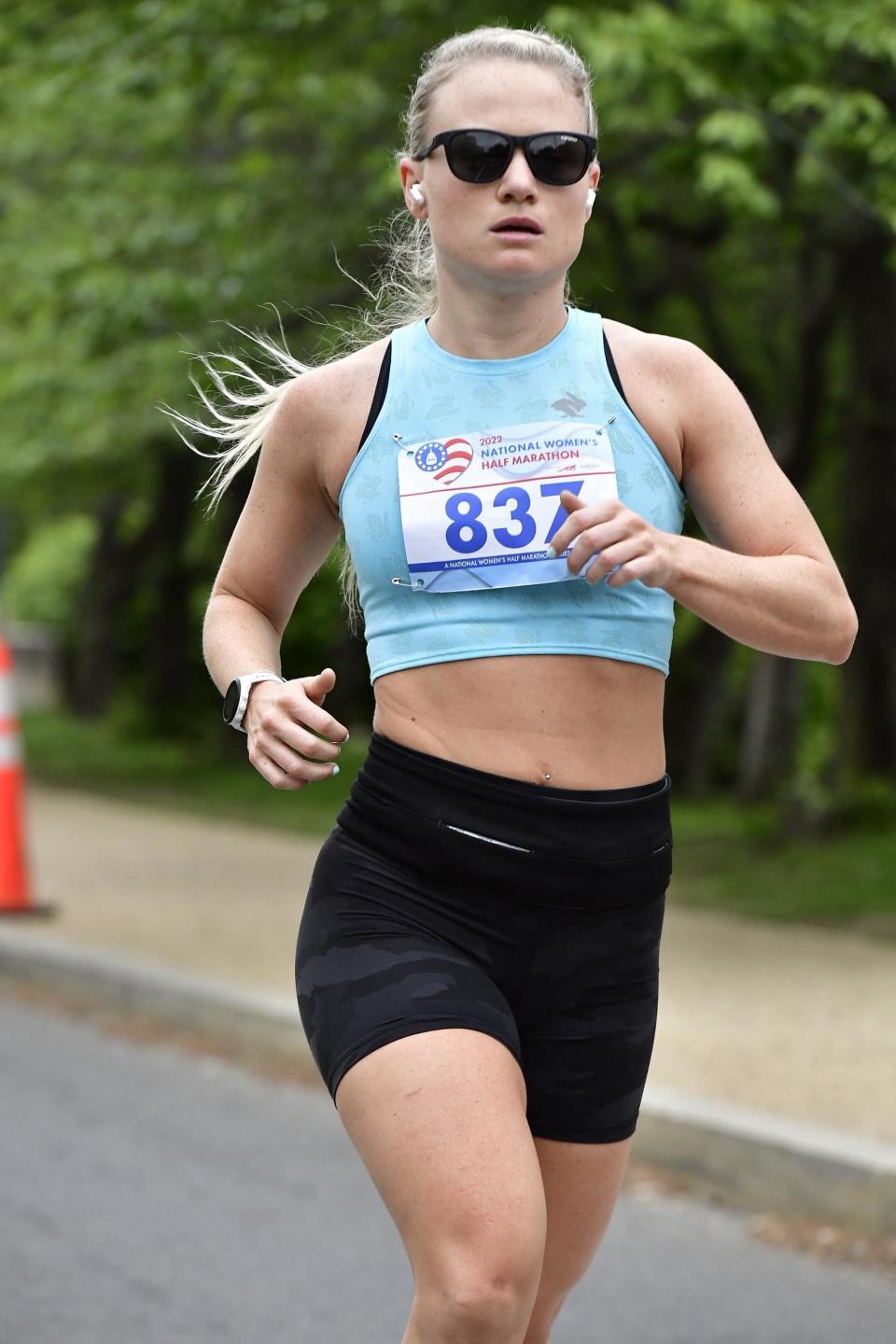Murder of Eliza Fletcher reminds all why female runners can never let down their guard
I spent more than three decades as a dedicated distance runner.
That meant more solitary pre-dawn and late-night training sessions than I can remember.
And never once did I leave my home or hotel room giving a second thought to my physical safety.
If only the same were true for female runners.
More crime news: MMA fighter Aaron Rajman's murder sends third person to prison as judge accepts plea deal
National coverage: Judge revokes bond for man accused of kidnapping, killing Tennessee jogger Eliza Fletcher
WATCH: Memphis runners gather to finish Eliza Fletcher's run after abduction, murder
But as the murder earlier this month of 34-year-old marathoner Eliza Fletcher showed, female runners face physical threats that male runners rarely, if ever, think about.
Fletcher never returned from a 4 a.m. training run on Sept. 2 near the University of Memphis campus. After her husband reported her missing, police began an intense search after discovering a surveillance video showing her being forced into a black SUV and abducted. Her body was found several days later near a vacant duplex, authorities said.
And even though an arrest has been made in connection to the crime, that is small comfort to many women.
In a 2016 Runner’s World survey, 43% of female respondents said they’d been regularly subjected to harassing behavior (catcalls, whistles, honked horns, sexual propositions, etc.) that made them feel unsafe.
Even more troubling, 54% of women said that, prior to their solo runs, they feared assault or unwanted physical contact, and 30% had at least once been followed by a car, cyclist or pedestrian while running.

It’s happened before
Fletcher’s murder brought to mind other recent murders of female runners.
Two years ago 25-year-old Sydney Sutherland’s body was discovered two days after she disappeared after going for a run in Jackson County, Ark.
In 2018, 20-year-old University of Iowa student Mollie Tibbetts was found murdered after having gone for a run in her rural hometown of Brooklyn, Iowa. The murder sparked the hashtag #MilesforMollie movement — enabling fellow female runners to express both their grief over her tragic demise and determination not to let fear prevent them from doing what they love.
Later in 2018, 35-year-old Wendy Martinez, who was newly engaged, was stabbed to death during an early-evening run in a busy, well-lit area in the heart of Washington, D.C. Her death sparked the viral hashtag #dcrunners4wendy.
In 2016, there were a rash of murders of female runners over the course of just a few days:
Alexandra Brueger, a nurse in Detroit, was shot and killed during a 10-mile run on a dirt trail.
Karina Vetrano was raped and killed while running on a trail in a Queens, N.Y., park.
New York City resident Vanessa Marcotte was found dead, burned and possibly sexually assaulted after not returning from a run in her parents’ hometown of Princeton, Mass.
Outcry on social media
While statistically speaking these incidents are relatively rare, the threat of them is a constant for all female runners.
No wonder in the immediate aftermath of Fletcher's death so many took to social media to let the world know just how sick and tired they were of having to live with the fear that, if they run alone, they could be next.
“It does not matter what time it was, if she was alone or what she was wearing. We should be safe to run when, where and how we want,” wrote one Twitter user.
“I regularly think of the Margaret Atwood quote but especially in times like this. ‘Men are afraid that women will laugh at them. Women are afraid that men will kill them,’” wrote another.
"Women runners worry most about 2 things before a run – whether they'll be abducted/assaulted/murdered or if they'll be subjected to cat calls and being sexualized. Men worry about whether they should poop before or after their run. We are not the same," wrote yet a third.
South Florida runners react
To beat our year-round heat, distance running in South Florida often means doing it in the dark.
Caroline Bell, 27, of Boynton Beach trains five times per week — “usually in the morning between 5 and 7 a.m. In the summer I have to start my long runs really early because of the heat and humidity.”

She tries to take precautions by carrying pepper spray, running in well-lit areas and sharing her location with her boyfriend via her cell phone.
But she’s heartbroken by what happened to Fletcher because she can relate to how passionate Fletcher obviously was about running.
“Based on some of the social media comments I have seen asking why she was running so early alone in the dark, it's clear to me that many people do not understand the dedication and passion that runners share,” Bell says.
“Eliza likely wasn't up running at 4 in the morning just for kicks. She was a married working mother of two whose schedule made it necessary to start her runs early. Instead of blaming her for her own kidnapping and murder, I wish those people would think about how dedicated and passionate about the sport she must have been to be up and running before sunrise. Runners need to run and will often do whatever it takes to get in their miles. I really admire her for that.”
Delray Beach marathoner Melissa Perlman, 40, who runs six days per week, tries to limit the time she spends in the dark — but sometimes it’s simply unavoidable. When she does run in the dark, she’ll do so in an extremely well-lit public area, often traversing the same blocks over and over again. On solo runs she also carries her cell phone so her boyfriend can track her location.

But Perlman laments having to take such precautions: “It’s an unfortunate reality that we female runners have to be so dialed in on when and where we run. With Eliza, she was a wife, a mom and a teacher — and fitting in a run for her apparently meant she had to go super-early.”
Tips for staying safe
In addition to having a loved one track your location via your cell, here are some other safety measures experts recommend for female runners:
Run with a partner or in a group whenever you can.
Use only one ear bud — or don’t listen to music at all.
Always carry your cellphone and a flashlight — and download one of the many free safety apps available to runners.
Tell someone where you will be and when you will be back.
Know your route so you’ll be aware of the dark and/or isolated areas to avoid.
Vary your route.
Be hyperaware and if you sense something amiss, leave that area — and call a friend or loved one immediately.
Run in the middle of the street or sidewalk, not close to the edges where trees, bushes and brush are.
Run with a handheld self-defense device — many of which are designed with female runners in mind.
By its very nature, distance running is a solitary, almost meditative activity. It should enable one to do his or her deepest thinking — or to not think at all.
Sadly for all of us that’s not the case for half of us.
This article originally appeared on Palm Beach Post: Eliza Fletcher's murder reminds female runners of threat while running

 money
money 